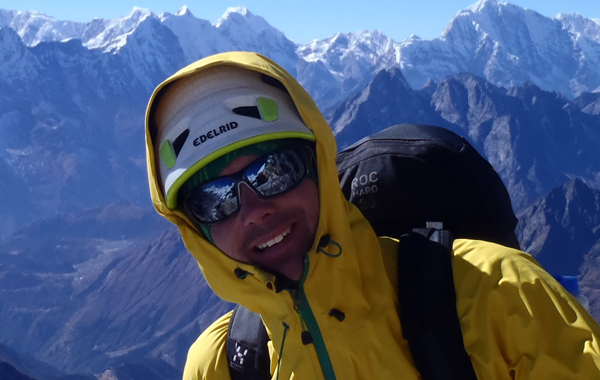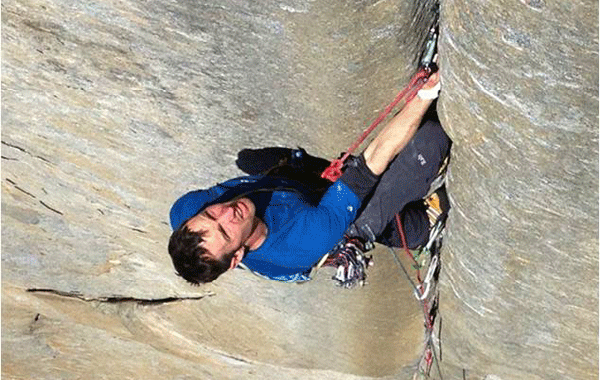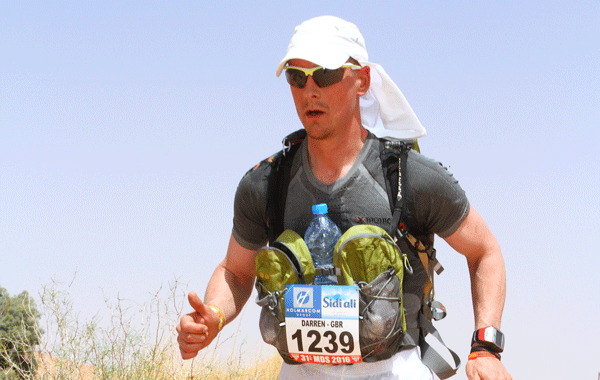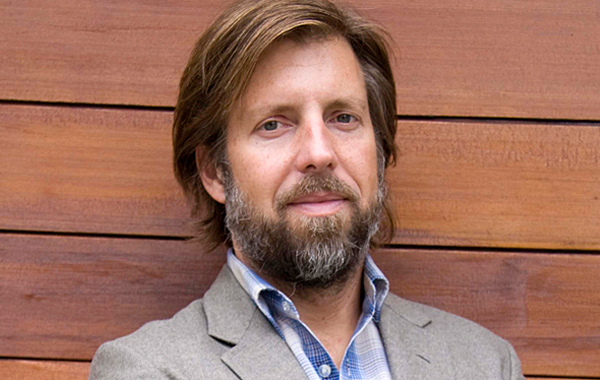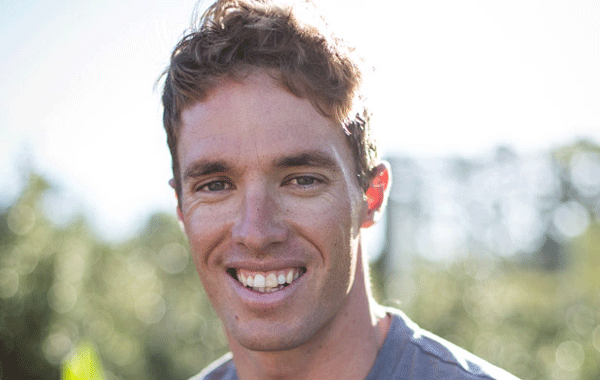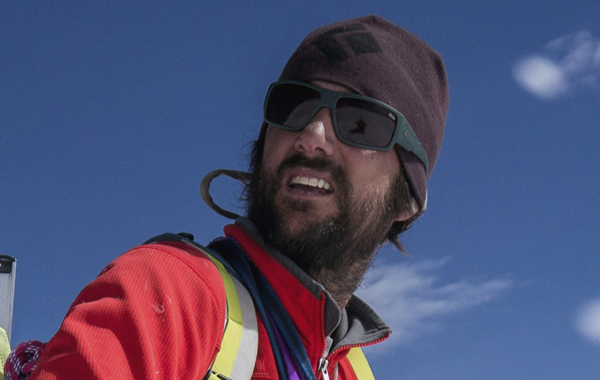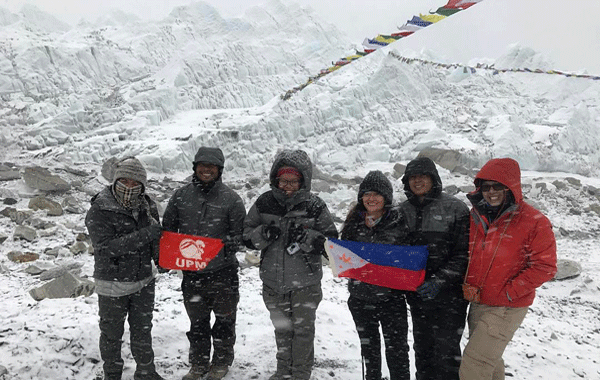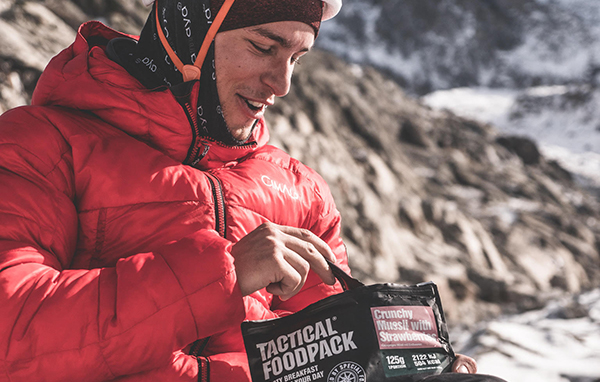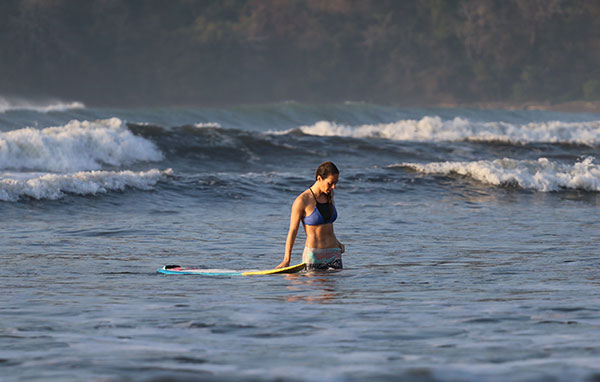JAMES THACKER is an IFMGA Mountain Guide and mountaineering instructor who has been working professionally in the mountains for over 12 years. Having grown up on the edge of the Peak District he has been acclimatised to outdoor adventure his whole life and his passion for mountains sees no boundaries.
In this exclusive interview James talks to us about his career working as a climber and instructor to date and his adventures in North Wales, the Scottish Highlands, The Alps and Himalayas.
To find out more about James, who is sponsored by Haglöfs and EDELRID, and to follow his blog visit www.jamesthacker-mountaineering.co.uk.
When did you get involved in mountaineering and what was it like growing up so close to the Peak District?
I started rock climbing and bouldering on the Gritstone edges in the Derbyshire Peak District. Growing up close to the ‘Peak’ I went hill walking with my family and climbing with my friend’s father. I soon became independent and hitched or got the bus/train to the local crags with friends. Growing up close to the Peak District was great, the climbing is really accessible and varied so you can get a lot done in a relatively short period of time. Of course, it’s also one of the best places to climb in the UK, but then I am bias.
From there my climbing slowly escalated, travelling further afield to bigger crags. In many respects it was a fairly traditional apprenticeship, from rock climbing, to climbing on the mountain and sea cliffs in Wales and Scotland, followed by the European Alps and the Himalayas.
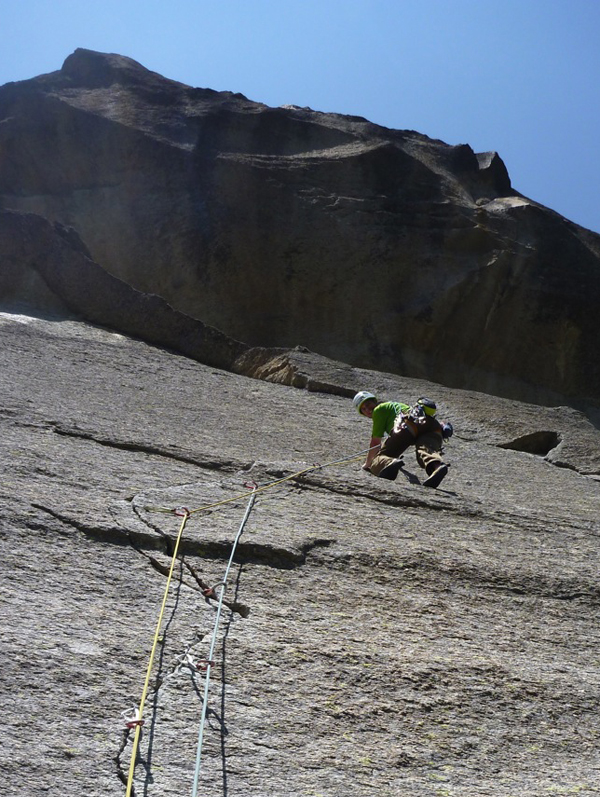
For our readers around the world could you go into some more detail about the Peak District and what it has to offer those with a passion for the outdoors?
The Peak District is a fantastic area, sandwiched between Manchester and Sheffield. The great thing is that you can live and work in a major city with all the facilities that they offer, but in 30 minutes be in the countryside. It’s not just about the climbing either, the area is great for hill walking, running, paragliding, mountain biking and just about every outdoor activity. For rock climbing in particular, this accessibility allows you to climb before or after work, you don’t need to be a weekend warrior. I now spend my time between Sheffield in the UK and Chamonix in France, another place where accessibility is the common theme (just on a different scale).
What other mountainous areas have you explored and what have been some of the highlights?
Fairly soon in my climbing ‘career’ I discovered Scottish Winter climbing and made many visits to the Highlands before continuing to work in Scotland for a further ten years in the winter. Winter climbing is such a unique pastime, with a really a strong scene which makes it even more special. Now living in Chamonix in the French Alps, when chatting to climbers from Europe the first question is always “Have you climbed on Ben Nevis…?”
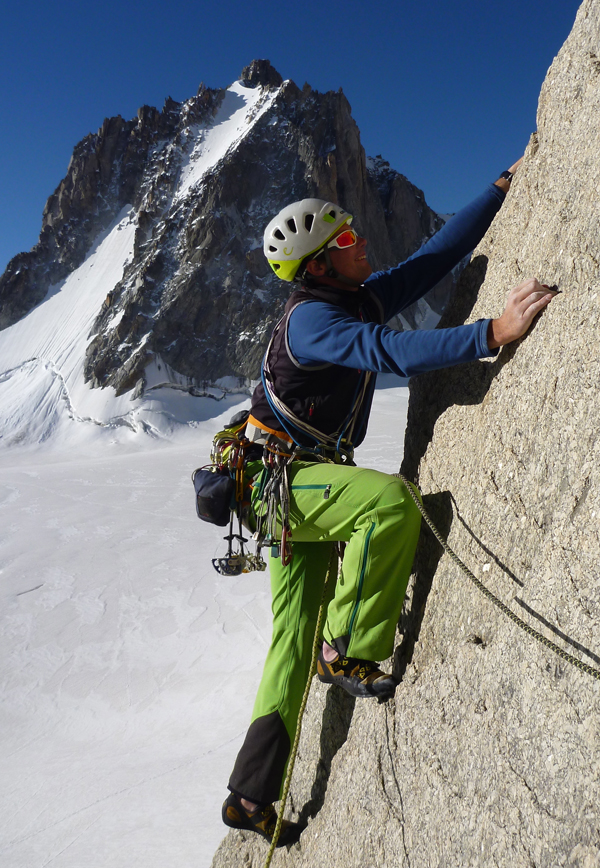
The other great thing about the climbing in the UK is its sometimes exploratory nature, and I have had a few trips to the Outer Hebrides climbing new routes on the sea cliffs there. In many respects it feels more remote than a big expedition, you are way out there over the sea.
Highlights would include an early trip to Greenland in 2000, climbing some of my first new mountaineering routes. This was my first experience of a major expedition and was a massive learning process. I also made my first trip to the Himalayas travelling to the Khumbu region to try to climb a new line on the North Face of Pharilapcha. Travelling with my good friend Andy Turner we climbed alpine style taking our experience from Europe to bigger mountains. Sadly, we didn’t summit but we learnt a lot in the process and made the third ascent of another significant line on Pharilapcha West.
What have your biggest achievements in mountain climbing been?
Climbing the North Face of the Eiger in 2007, with Nick Wallis. So much history surrounds this route that it’s not simply a case of doing the technical climbing but also carrying the burden of all that has gone before. I climbed this shortly after breaking my leg badly in a skiing accident, I wasn’t sure whether I could return to alpine climbing so it was a huge turning point in both my climbing but also my recovery.
In recent years my biggest achievement was qualifying as an IFMGA Mountain Guide, and working in a sustainable way. The process is a long one, four to five years but with probably fifteen years of mountaineering experience underpinning it.
Could you tell us how your work in mountaineering began and how it has led you to your current job as a professional mountain instructor and guide and what the work involves on a day-to-day basis?
I started in the outdoors working in an outdoor centre as a storeman, before qualifying as a mountaineering instructor (MIC) and taking a Senior Instructor post. My day to day work was with children and adults for a local education authority. Gradually, I did more of my own work as an independent instructor and decided to set up on my own in the Peak District. Finally, I started working in Europe and internationally as an IFMGA Mountain Guide where most of my work is now based. I haven’t really looked back.
On a day to day basis, my work is fairly varied changing with the seasons. From ice climbing and off piste skiing in the winter months, ski touring and ski mountaineering in the spring with more traditional mountaineering and rock climbing in the summer. For me the varied nature of the job is really important and helps me to remain fresh and motivated. This also allows me to explore new areas with some clients while still enjoying areas I know well, which give more of a known outcome.
Could you tell us about your work with the Edale Mountain Rescue Team and what the aims of the organisation are?
Being involved with Mountain Rescue always seemed like a natural thing to do in the Peak District and I was involved with two teams over a 16-year period. I started with Derby MRT, covering the limestone cliffs of Matlock and the southern end of the Peak District before moving to Edale MRT covering the central Peak District. Mountain Rescue is a totally voluntary service in the UK with the aim of conducting rescues, providing medical care and alleviating distress in upland areas.
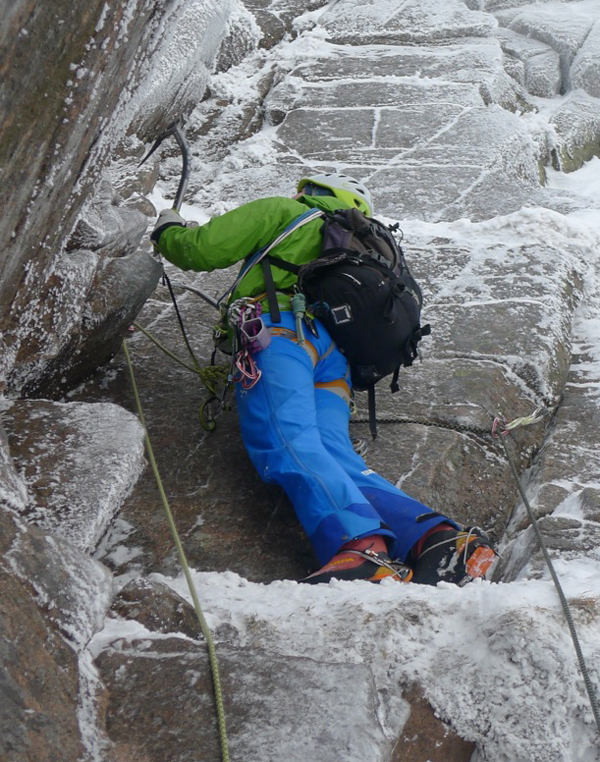
Edale is a busy team, and towards the end of my time with them they were conducting a rescue once ever three days. It was quite a commitment because inevitably the time spent stretches far beyond the time you see a rescue team at the crag or on an open hillside.
Sometimes exhausting, I still view it as hugely rewarding having been in a small number of situations where the team changed the outcome for some people. To work alongside emergency doctors, paramedics and other emergency services to help somebody in the mountains is a rare privilege.
Could you tell us about the Chris Walker Memorial Trust and the reason it’s so important to you?
Chris Walker was a Mountaineering Instructor who was killed on Buchaille Etive Mor in Glencoe along with one of his clients. Sadly, Chris lost his life in an avalanche on a mountain that he knew well, in unusual conditions that don’t often prevail in Scotland. Chris was a close friend of mine and we had done many routes together in Scotland and the Alps.
Shortly after these tragic events, many of Chris’ friends and colleagues helped to start the Chris Walker Memorial Trust, of which I am now one of the Trustees. The Trust has a couple of simple aims, first to finance the delivery of avalanche workshops for Mountain Guides and Mountaineering Instructors, these being delivered by the Scottish Avalanche Information Service (SAIS). The second is to assist UK based mountaineers visiting interesting areas for mountaineering expeditions, with the simple aim of keeping Chris’ memory alive in some small way.
Could you sum up what mountaineering has done for your life and how you think it can have a positive effect on the lives of others?
Most importantly, mountaineering has encouraged me to travel to different places and meet people from many different walks of life that I may not have been necessarily exposed to. It’s not all about the technical difficultly, but just as much as the characters that you meet along the way. Whether, it choosing to climb with somebody on a local crag or setting foot on a Himalayan face, those experiences are quite powerful.
There has been a lot written in the UK press recently describing mountaineering as a perhaps selfish pursuit. I don’t really agree with that although I can see how it might be perceived by the casual observer. Like any activity that people practice to a high level, it requires drive and there will be sacrifices in other areas of life. I can only speak for myself and say that climbing and mountaineering has enhanced my life greatly, but the pleasure we take from the mountains is also balanced with inevitable risks and we all have friends and colleagues that have been injured or killed in their pursuits.
Life generally isn’t however risk free and the lessons learnt from climbing and mountaineering are just as important in other areas.

